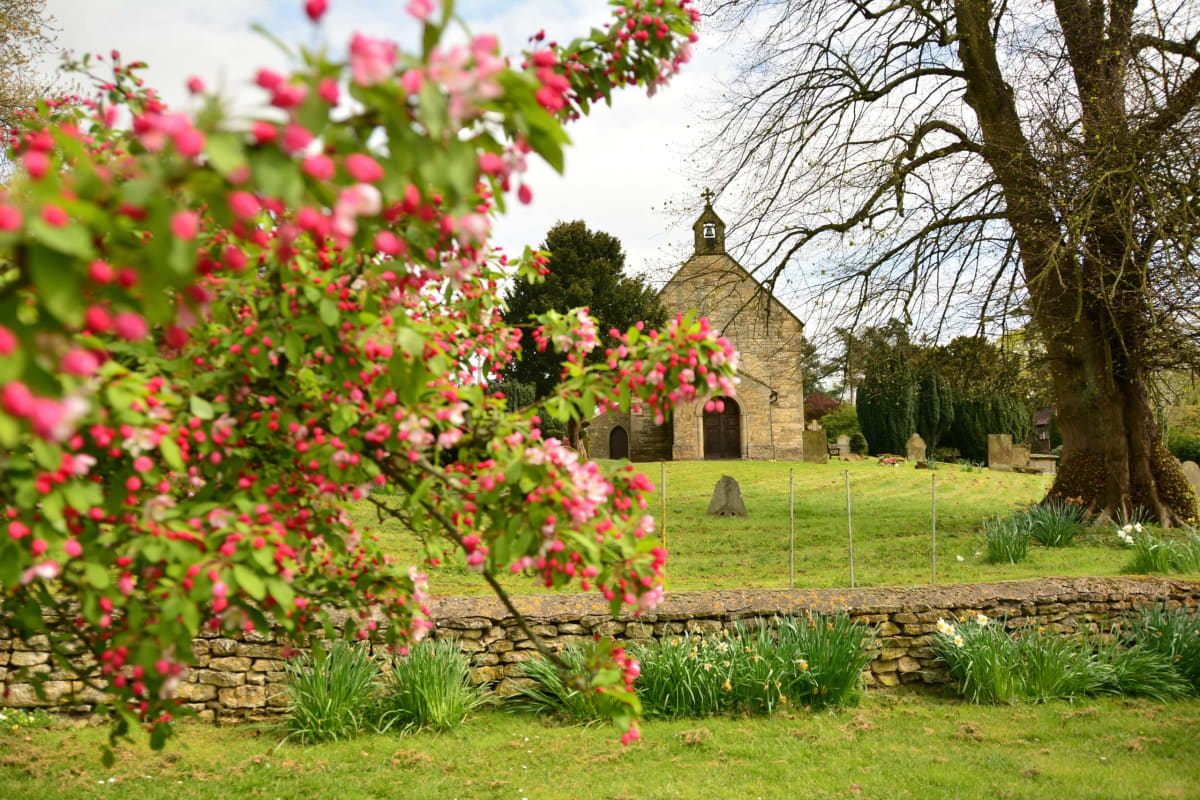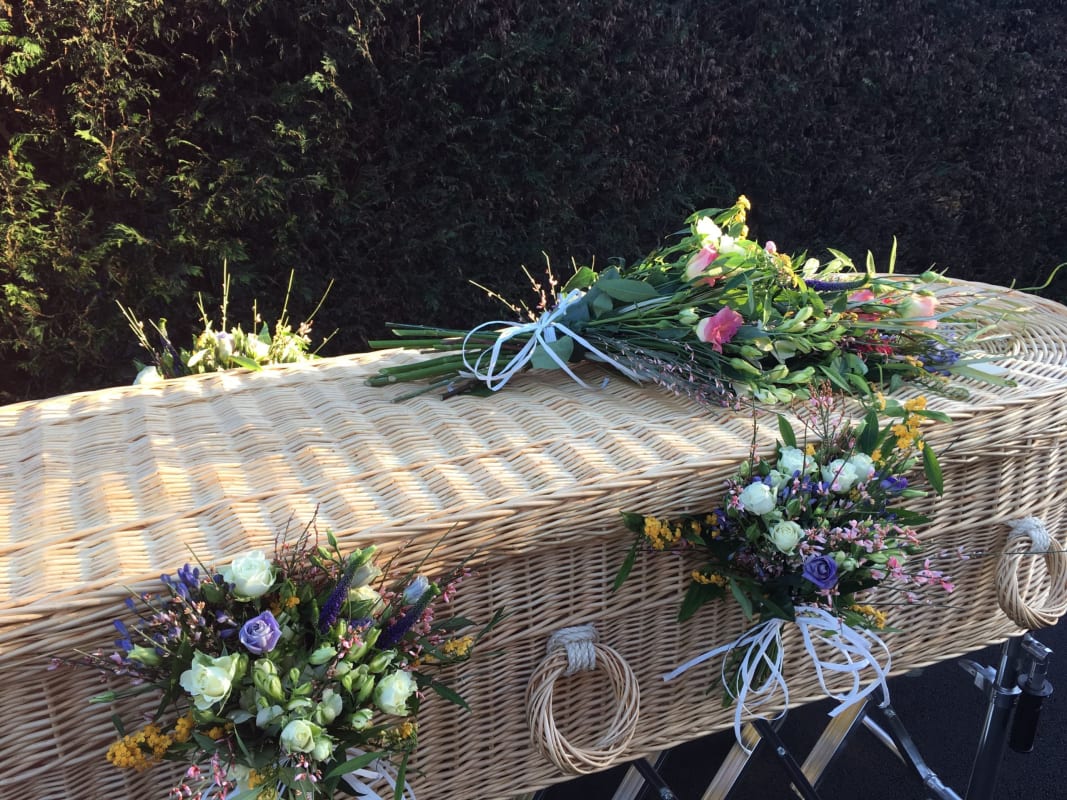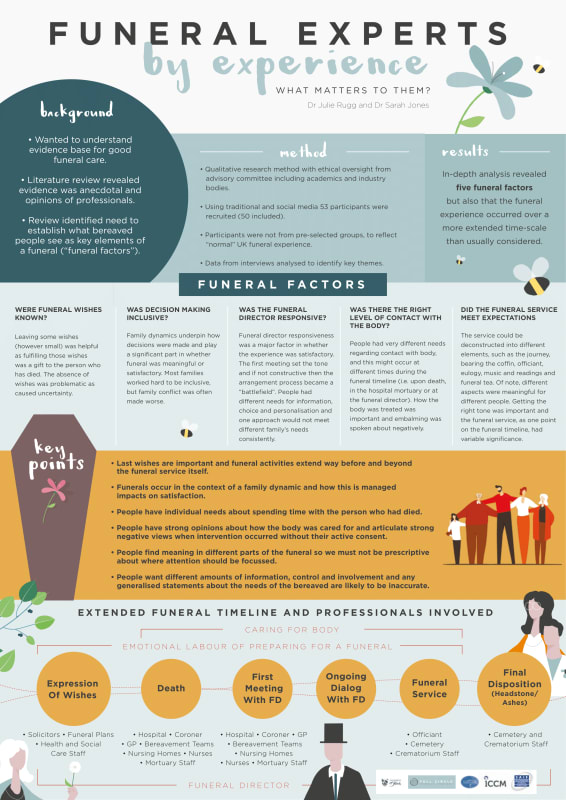
To protect bereaved families during the current coronavirus outbreak, the government has laid out a number of strict guidelines for funerals.
These often conflict with what’s instinctive during times of grief — to hug, to hold hands, to simply be together. It’s going to be hard. But these rules are also essential if we want to keep ourselves and our loved ones safe at this time. Following them now can save lives.
If you’re going to a funeral in the weeks to come, here’s what you can expect.
Who can go to the funeral?
Many local councils are limiting numbers at funerals at the moment to 10 people, sometimes less. The funeral director will warn you ahead of time if this is the case.
We have a detailed summing-up of the rules on who can attend here. But essentially, it’s:
- Close family
- Anyone who lived in the same house/flat as the person who has died
- (If there aren’t any close family members) close friends
If you are pregnant, over 75, or have a condition that puts you at greater risk of serious illness, you should stay home to stay safe. If you’re not sure, check these lists of vulnerable groups and extremely vulnerable groups.
The same goes if you have any coronavirus symptoms at all, even mild. Or if you need to be self-isolating because you’ve had contact with someone with Covid-19. Stay home.
If the person died due to Covid-19, and you were living with them, you won’t be able to attend a funeral until the 2 week quarantine period is up.
We know it’s hard not to be there to say goodbye. If you’re struggling with this, we have some advice on other ways to pay tribute to the person you’ve lost here.
Travelling to the funeral
The government says that it’s important to only travel to the funeral with other people from your household — sharing a car can help a virus spread.
For this reason, a lot of funeral homes are saying no to limousines at the moment to protect their staff and bereaved families. If you do have one, it’s really important to:
- Check that the funeral director will disinfect the car before and after.
- Wash your hands for 20 seconds before getting in, and the same after — try not to touch your face.
- Follow any instructions the driver gives you.
If you like, you can ask the funeral director to change the route of the funeral procession so that it goes past the homes of people who wanted to go but couldn’t. This gives them a chance to say goodbye: they can step outside and wave or clap to pay their respects.
Before you go in to the service
Most crematoria are asking people to wait in their cars until a staff member tells them it’s okay to come in. So, each household comes in one after the other. This helps prevent crowding at the entrance.
If you’re going to an outdoor service at the graveside, it may be the same at the cemetery gates. The funeral director will tell you what to expect.
Remember, you need to stay 2 metres away from anyone you don’t live with. We know this is very difficult to bear when all you want to do right now is comfort each other, but it’s really important.
You can find advice on social distancing here.
The funeral service
If you’re having the service indoors, at the crematoria for example, there are a few things to bear in mind:
- Staff from the venue will usually hold the doors open for you, so you don’t have to touch them.
- There will almost definitely be hand washing facilities and hand gel ready for your use when you get in. Don’t be afraid to ask.
- Seats are usually placed two metres apart now, to help you maintain social distancing.
If the service is outdoors, perhaps at the graveside, you can stand together with people who are living with you during the service. But you’ll need to stay 2 metres away from anyone else.
For either kind of service, it can help to know that:
- You can ask the funeral director ahead of time if they can live stream the funeral service. This means other friends and family can watch from home.
- The coffin will most likely be carried by staff from the funeral home or brought in on a wheeled platform. This is so that family members can have safe social distancing.
- You may be asked not to touch the coffin. For this reason, a lot of crematoria are closing the curtains around the coffin after it is brought in.
- If you have to cough, sneeze, or blow your nose: cover your nose and mouth with a tissue, or your sleeve if you don’t have one. Then wash your hands or use hand gel as soon as you can.
Remember: even though the service is going to be small, it can still be really meaningful and special. And you can always hold a bigger service that everyone can attend later on, when larger gatherings are allowed again.
After the funeral service
As with travelling to the funeral, it’s important to only travel back with the people you live with. When you get home, take 20 seconds to wash your hands.
While it’s not possible to organise a wake at the moment, you could still hold an ‘online wake’. You can use a free video call service like Google Hangouts, the Houseparty app or Zoom to talk to friends and family.
It’s a chance to share memories about the person who has died and talk about what happened at the service to those who couldn’t make it.
Bear in mind that some free video call services cut out after 40 minutes. It’s no problem: you just need to set up the call again to continue.
Get the support you need
Losing someone you love is always overwhelming. But it’s particularly hard right now.
If you need someone to talk to
- Cruse Bereavement Care offer free advice for bereaved people and a support line to chat: 0808 808 1677.
- The Samaritans help line is open 24/7 if you’d just like to talk: 116 123.
If you need help with funeral costs
- Beyond’s guide to government, charity and other sources of financial aid can be found here.
- You can also get free advice from Down to Earth, an organisation that supports people struggling with funeral costs: 020 8983 5055.





The death toll from the corona virus is rising daily, but families who are traumatized by the loss of a loved one are also suffering because they cannot pay their last respects to those who died of the disease.